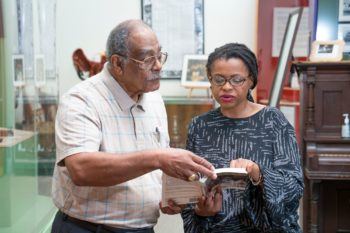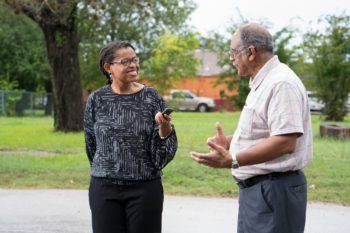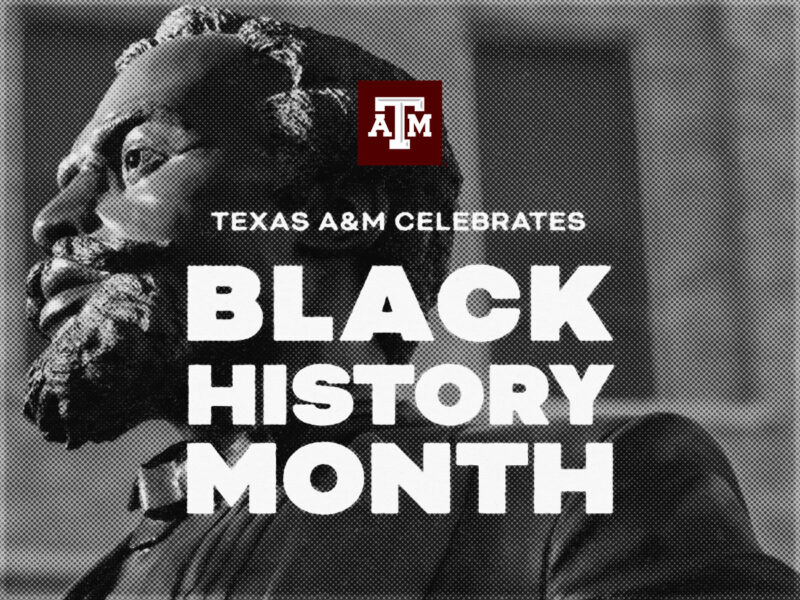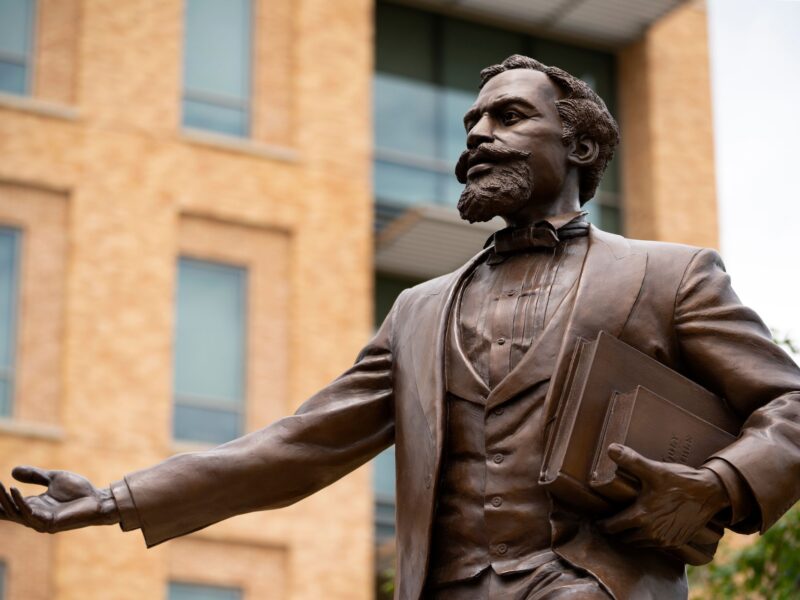Preserving Heritage

The idea was born in a cemetery.
As Andrea Roberts walked among the final resting places of her ancestors, she was inspired to embark upon a lifetime journey to help preserve and protect African-American cultural sites.
“It was Mother’s Day and I went out to my family’s cemetery where my grandmother and my great-grandmother are buried,” said Roberts, who’s now a Texas A&M assistant professor of urban planning.
“That day I saw one other person who pointed out where his family was,” she said.
After a short discussion of family lineage, Roberts said she did not think they were related.
“Not that way,” he said, “but we’re related through slavery.”
“That’s where it crystallized for me,” said Roberts, who went on to found the Texas Freedom Colonies Project, a major initiative to preserve the heritage of the state’s self-sufficient, all-Black communities that were established between 1865-1920.
As the leader of the project, Roberts draws upon her more than 12 years as a municipal administrator, where she learned firsthand about issues associated with Black community heritage conservation.
Cataloging Historic Black Settlements
At the end of the American Civil War, approximately 250,000 formerly enslaved people in Texas, facing new and extraordinarily difficult circumstances, worked for decades to establish self-sufficient, all-Black communities known by some as freedmen’s settlements or freedom colonies.
Many of these communities are unmapped, absent from public record, or destroyed due to natural disasters, gentrification and land dispossession. The communities that remain represent a crucial link between contemporary Black Texans and their family roots, Roberts said. In many cases, they are the last connections some African Americans have to their enslaved ancestors, cultural assets and property.
Over the past two years, Roberts has brought her Texas Freedom Colonies Project team, which includes faculty and graduate students, with her on her travels through Texas interviewing residents and their descendants to locate these freedom colonies and preserve the heritage of these communities.
Team members document the communities’ historical and contemporary materials, recordings, photos and oral histories about settlements’ origins, locations, challenges and promising preservation practices. The records are uploaded to the project’s Texas Freedom Colonies Atlas, a website that analyzes the surveys, archival material, images, stories and public histories that are collected.
In addition to data uploaded by project team members, the site also collects crowdsourced data that will support freedom colony advocates, planners and cultural resource managers as they support community preservation and protection from development.

Since 2017, Roberts has mapped 357 of 557 known freedom colonies across Texas and has crowdsourced an additional 55 previously-undocumented locations from the public.
“We’re trying to engage all the dispersed descendants of all freedom colonies,” Roberts said. “I want to make it known that freedom colonies are not just in the past, but that there are people still living there and engaged in these places and that we are committed to protecting them.”
Roberts said project findings can help African Americans reclaim parts of their unrecorded past, learn new ways to protect their historical properties, and inform political decisions that affect the communities.
The project website allows communities to store historical and contemporary materials, recordings, photos and oral histories about settlements’ origins, locations, challenges and promising preservation practices. The platform also supports freedom colony advocates, planners and cultural resource managers as they support preservation and protection from development.
Partnering With State And Federal Agencies
Helping fund her work is the 2020 Whiting Public Engagement Fellowship, the 2019 National Trust for Historic Preservation’s National Trust African American Cultural Heritage Action Fund Grant, and Texas A&M’s T3 Grant and Center for Digital Humanities Research grants, among others.
In addition to funding College Of Architecture student researchers, “our grants give us the visibility to tie us into national efforts to preserve historic places,” Roberts said.
Her team is partnering with historic preservation groups and other state and federal agencies, which use the atlas as a practical resource for development and infrastructure projects.
Recently, the team joined the Landowners Association of Texas and the Texas A&M University School of Law to develop webinars and workshops for landowners’ estate planning. The sessions, which provide freedom colony residents with strategies to mitigate land loss, are funded by a grant from the U.S. Department of Agriculture.
Other endeavors include working with complementary projects such as a University of North Carolina at Chapel Hill effort that seeks to map every African-American town in the U.S.
Roberts is also a 2020 visiting scholar at Yale’s Gilder Lehrman Center for the Study of Slavery, Resistance and Abolition. Using their archives, she is writing a book about Black historic preservation practice to be published by the University of Texas Press.
Looking Forward
Roberts said she wants her legacy to be about an approach to empowering people to make themselves visible and to have a say over what happens in their communities.
“Right now, it’s African-American settlements, but I’m hoping this platform and approach are extrapolated around the planet,” she said. “The next set of communities I want to work with is the African diaspora in the Caribbean. I want to look at how we’re documenting and making visible Native American communities. I hope eventually there is a whole cadre of scholars who are doing the research I’m doing and an atlas and study in Australia using my methodology and approach.”
This article by Sarah Wilson originally appeared on COA News.





